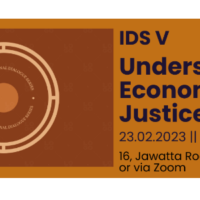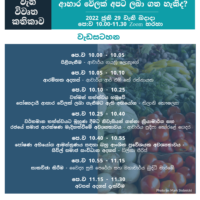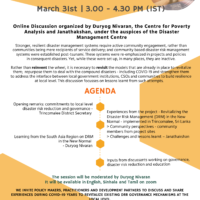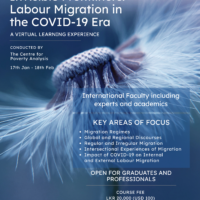CEPA FILM FORUM PRESENTS: Indian Ocean Memories and African Migrant
04 Jan 2016
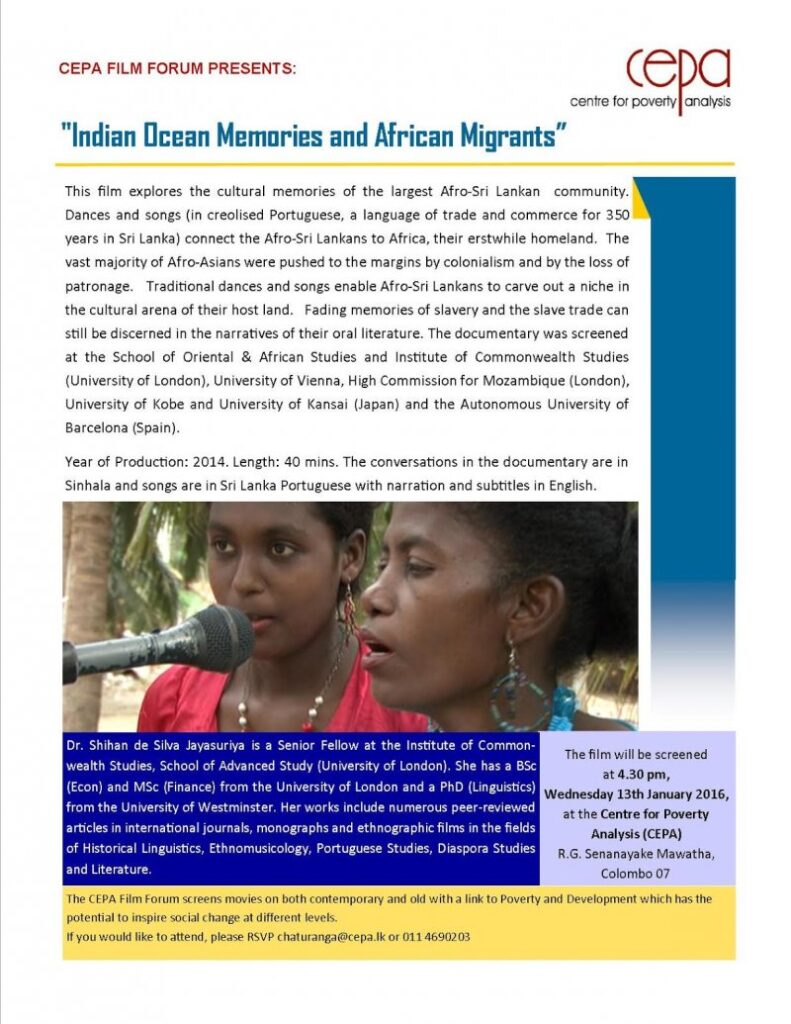
This film explores the cultural memories of the largest Afro-Sri Lankan community. Dances and songs (in creolised Portuguese, a language of trade and commerce for 350 years in Sri Lanka) connect the Afro-Sri Lankans to Africa, their erstwhile homeland. The vast majority of Afro-Asians were pushed to the margins by colonialism and by the loss of patronage. Traditional dances and songs enable Afro-Sri Lankans to carve out a niche in the cultural arena of their host land. Fading memories of slavery and the slave trade can still be discerned in the narratives of their oral literature. The documentary was screened at the School of Oriental & African Studies and Institute of Commonwealth Studies (University of London), University of Vienna, High Commission for Mozambique (London), University of Kobe and University of Kansai (Japan) and the Autonomous University of Barcelona (Spain).
Year of Production: 2014. Length: 40 mins. The conversations in the documentary are in Sinhala and songs are in Sri Lanka Portuguese with narration and subtitles in English.
Exoticising Memory: A Review of Indian Ocean Memories and African Migrants
Indian Ocean Memories and African Migrants, a film tracing the history of Afro-Sri Lankans through their musical heritage, was recently screened at CEPA. The film attempts to map the story of African migration to South Asia, and to trace the imprint of the migrants in the communities they settled in. A film by an academic for academics, it felt like a personal project, not a professional documentary. The camera work is occasionally shaky or badly edited, and some content seemed, at best, tenuously connected to the rest of the work. All in all, it felt more like a multimedia accompaniment to a research paper or a presentation than a stand-alone work. However, through the film I learned a great deal about the history of African migration to East Asia, and the small community that remains in Sri Lanka.
As an American, my history education has typically denied agency of movement to anyone who was not white. The great traveller Ibn Battuta, the Hajji and explorer king of Mali, Mansa Musa, even Genghis Khan are erased from memory, while our stories follow Lewis and Clark and Columbus as if the places they visited never existed before a white man set foot there. Even the Silk Road, a testament to the exploratory audacity and bravery of Eastern people, we learned through the optics of Marco Polo. So I am grateful, always, to be reminded that exploration was not always the prerogative of the West. Professor Jayasuriya does this in her brief overview of ancient African migration to East Asia at the beginning of the film. She claims that Ethiopian trade with Sri Lanka can be traced back to the 6th century. African involvement in South Asia was not limited to trade, and in India, African migrants brought by the slave trade integrated into their societies, playing a large role in the military, arts, and state-craft. This is a story of slavery far from the one I am used to hearing in the USA, which tends to focus on the pitiful situation of enslaved Africans, not their agency and ability to shape the societies they lived in.
The documentary ultimately focused on descendants of African slaves brought to Sri Lanka under Dutch Colonialism. The small remaining Afro-Sri Lankan community maintains a unique place in Sri Lankan history – they are some of the last speakers of Portuguese-Creole, a language which flourished during the Dutch occupation of Sri Lanka. Since English became the national lingua franca, those who speak the Portuguese-Creole have dwindled to a few hundred speakers. While many of the Afro-Sri Lankans have lost Portuguese-Creole as a spoken language, at least some of it is maintained through their music. The community Professor Jayasuriya visited remembers about 30 Portuguese-Creole songs, which range from solo religious melodies to songs sung communally at celebrations. She claims that African musical heritage has significantly influenced Sri Lankan musical genres such as Baila, though to my admittedly non-musical ear, this argument was not well fleshed out. What is certainly true was the traces of African influence in the Afro-Sri Lankans’ music. My favourite scene in the documentary showed the community dancing and singing together, small children copying the dance steps of older family members. It reminded me strikingly of dancing I witnessed while studying abroad in East Africa, and held the same joyful, exultant quality.
However, the future of the Afro-Sri Lankans may not be so bright. Professor Jayasuriya presents them as an endangered community, at risk of losing their heritage entirely due to migrating from the South for marriage or greater economic opportunities. Some of the Afro-Sri Lankan singers have created a musical ensemble, which has met with limited success. They have performed in Colombo a few times in elite venues such as Barefoot cafe, and once went to a South African festival. From the clips shown in the documentary, however, their songs hold more meaning within their community than as a presentation piece for outsiders. As the French philosopher Michel Foucault cautions in his work Discipline and Punish, to observe behaviour means to change it. This plays out in the staged performances in the documentary, which lacked the spontaneous energy of the music the community played together. Poverty offers harsh options: to commodify one’s culture and market it as ‘exotic’ to curious Westerners and intellectuals, or to leave it in search of opportunity elsewhere. The film had some uncomfortable qualities: clearly a Westernised intellectual gaze fixing on a subaltern ‘exotic’ community. And yet, as one of the Westerners in question, is it equally paternalistic of me to suggest that this attention is bad for the ‘other’ as if I suggested they should embrace it? Is the privileged class duty bound to observe a tradition in order to ‘preserve’ it, even if by observing, we change it? The film left me with questions I couldn’t answer. After all, the decision of how to preserve their heritage, and for whom, rests with the Afro-Sri Lankans.
Film Forum
CEPA screens films that are contemporary and old, with a link to poverty and development as well as a potential to inspire social change are screened and discussed. Films are hosted by the CEPA staff, guest hosts identified by CEPA and by members of the audience who would volunteer to host a particular film. The host’s task is to make a brief introduction to the film, by way of writing a short blurb to be used when publicising and a verbal introduction before the film is screened. The host also facilitates a post-film discussion. CEPA aims to host 4-6 Film Forums per year.
